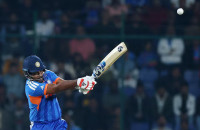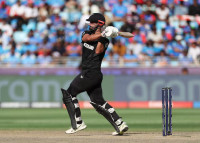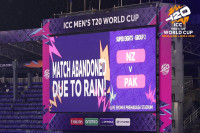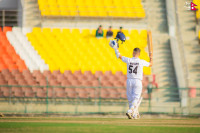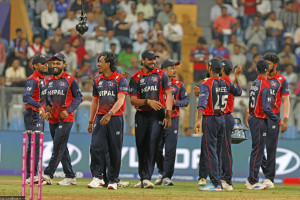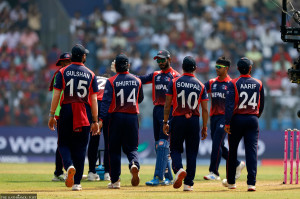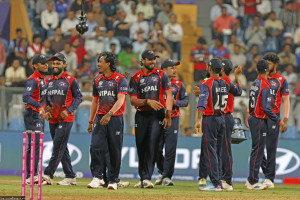Cricket
Paras Khadka, Nepal’s most accomplished cricketer, steps down as captain
In a decade as captain, Khadka led the national team from minor cricket leagues to the One-Day International status.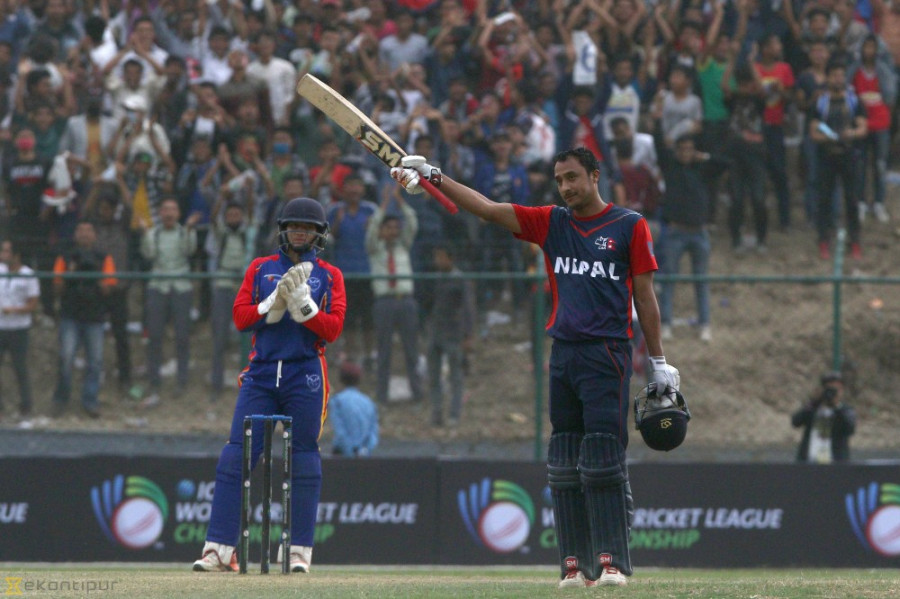
Prajwal Oli
Paras Khadka, who led the golden generation of Nepali cricket, stepped down as captain of Nepal’s cricket team after 10 years on Tuesday. Khadka announced his resignation via a Facebook post.
“I have hereby decided to resign from my post as the captain of Nepal cricket team as there has to be a new way of taking things forward with a fresh start and a committed vision with everyone involved,” Khadka said in the post.
His resignation came a day after the International Cricket Council lifted a ban on the Cricket Association of Nepal, albeit conditionally.
“Great to know that the suspension of Nepal cricket has been lifted, and would like to wish the new committee to work for the betterment of Nepal cricket, players and its stakeholders,” said the 31-year-old allrounder who played an influential role in Team Nepal’s elevation from Division 5 in 2010 to One-Day International (ODI) nation in 2018.
“Resigning from my position is not an abrupt decision and made overnight. I was waiting for the suspension to be lifted and it was lifted yesterday. It was good news and as a captain, it was a right time to resign,” said Khadka.
Under Khadka’s leadership, the Nepali cricket team finally became something that Nepali sports fans could be proud of. After decades of languishing in minor leagues, the team has hop-skipped its way into the international playoffs after acquiring ODI status in 2018.
A middle-order batsman, Khadka, who also bowled medium pace, enjoyed an illustrious career ever since he made his foray into cricket. Khadka represented the country in the Under-19 World Cups of 2004, 2006 and 2008 while also being a part of the senior side.
He took over the senior side in 2009 when he was 22 years old, replacing Binod Das. In the 10 years since, he has broken records and elevated Nepali cricket to heights unseen.
Last month, he became the first Nepali cricketer to score a Twenty20 International (T20I) century (106 not out) as Nepal defeated hosts Singapore in the tri-series alongside Zimbabwe. This was also a world record, as he became the first captain ever to score a century while chasing in a T20I. In addition to the T20 century, Khadka also became the first Nepali player to hit an ODI hundred when he slammed 115 runs against the United Arab Emirates in January this year.
Khadka’s job in recent years, however, was not limited to the pitch. He had been fighting the country’s inefficient cricket administration since 2014, which was the year Nepal established itself as a cricketing nation, following the ICC World Twenty20.
“I wanted to take a break for a certain time,” Khadka told a press conference on Tuesday. “I have not only been performing as a captain but also as a mentor, selector and coordinating off the field with the ICC.”
Khadka, along with his teammates, had even publicly denounced the Cricket Association of Nepal for corruption and inefficiency. In 2016, the cricket’s world governing body suspended the Cricket Association of Nepal, citing government interference.
In the association’s absence, Khadka worked as the national selector on an Independent Selection Committee formed by the ICC.
Khadka played for Nepal in six One-Day Internationals, 27 T20 Internationals and 50 T20s. As Nepal’s premium allrounder, he’s been leading by example.
“As a player, he is a dominant batsman. Even though he’s been focusing more on batting for the past two years, he’s been a consistent all-round performer,” said Devendra Subedi, one of Nepal’s international umpires.
Former captain Das, however, believes that it is not the right time for Khadka to step down.
“None of the members of the current team has stood to take over the captaincy. None of the senior players has cemented their place as of now,” said Das.
When asked about who would take over the national team, Khadka said that it was up to the Cricket Association Nepal and the coaches to decide that.
“It is not up to me to decide who will be the next captain,” said Khadka. “I was never told I would become captain in 2009. But Gyanendra Malla is the senior-most player in the squad, and he should lead the team at least until next year.”
Malla, Khadka’s deputy on the national team, had nothing but praise for his captain.
“He is a great leader on and off the field,” said Malla. “His absence will be a loss for the team. His statistics speak about his quality as a player.”
Khadka was not just a celebrated sportsman but also commanded a fan following rarely seen before. He was a decorated batsman and is the most accomplished player in the history of Nepali cricket.
“It is his sound decision-making ability that made Paras what he is today, be it on the pitch or in administrative matters,” said Das. “As far as I know him, he is a man of principle. He was not only one of the top performers on the pitch, but his dealings with his teammates were excellent too.”




 16.33°C Kathmandu
16.33°C Kathmandu
